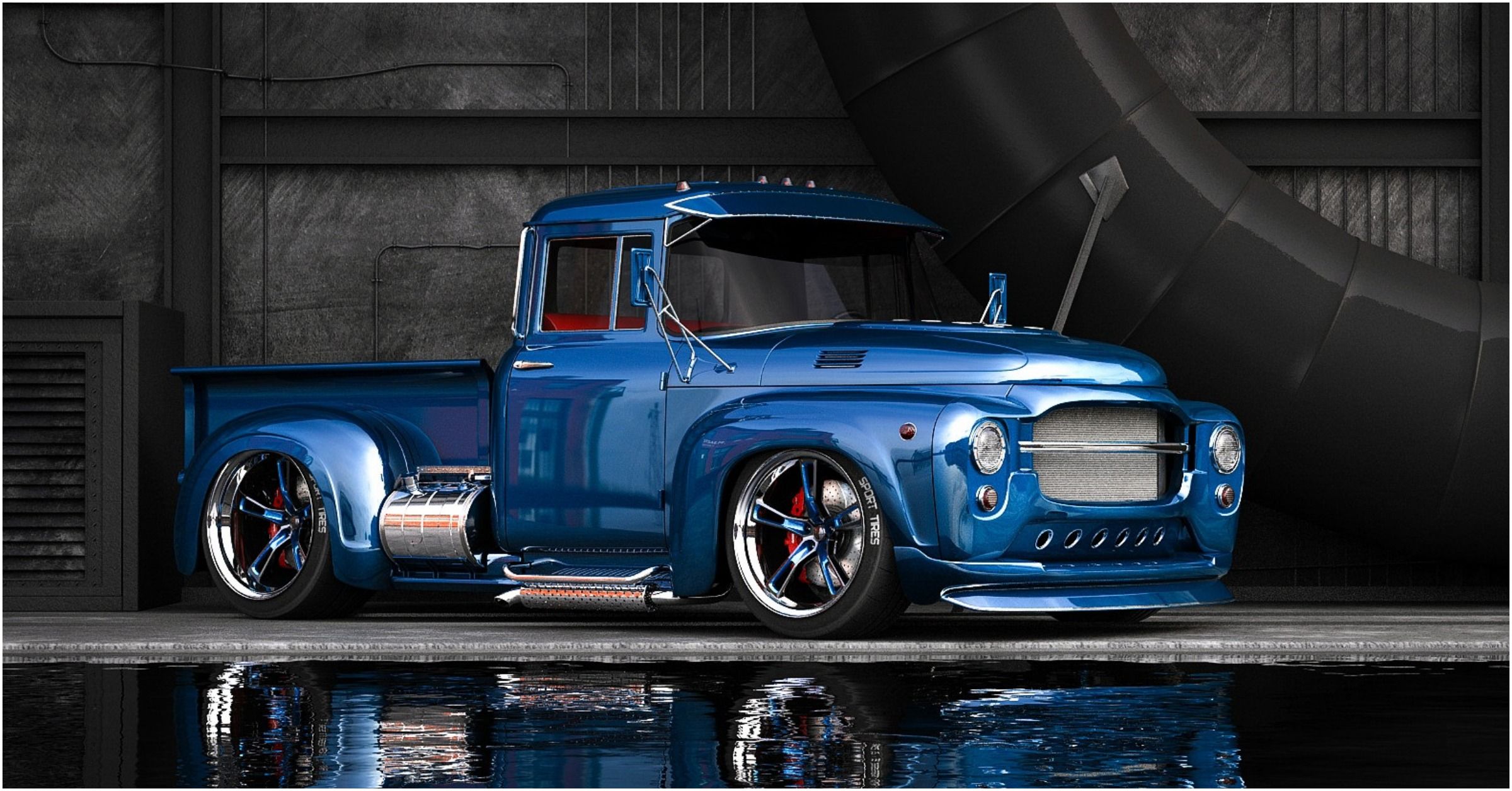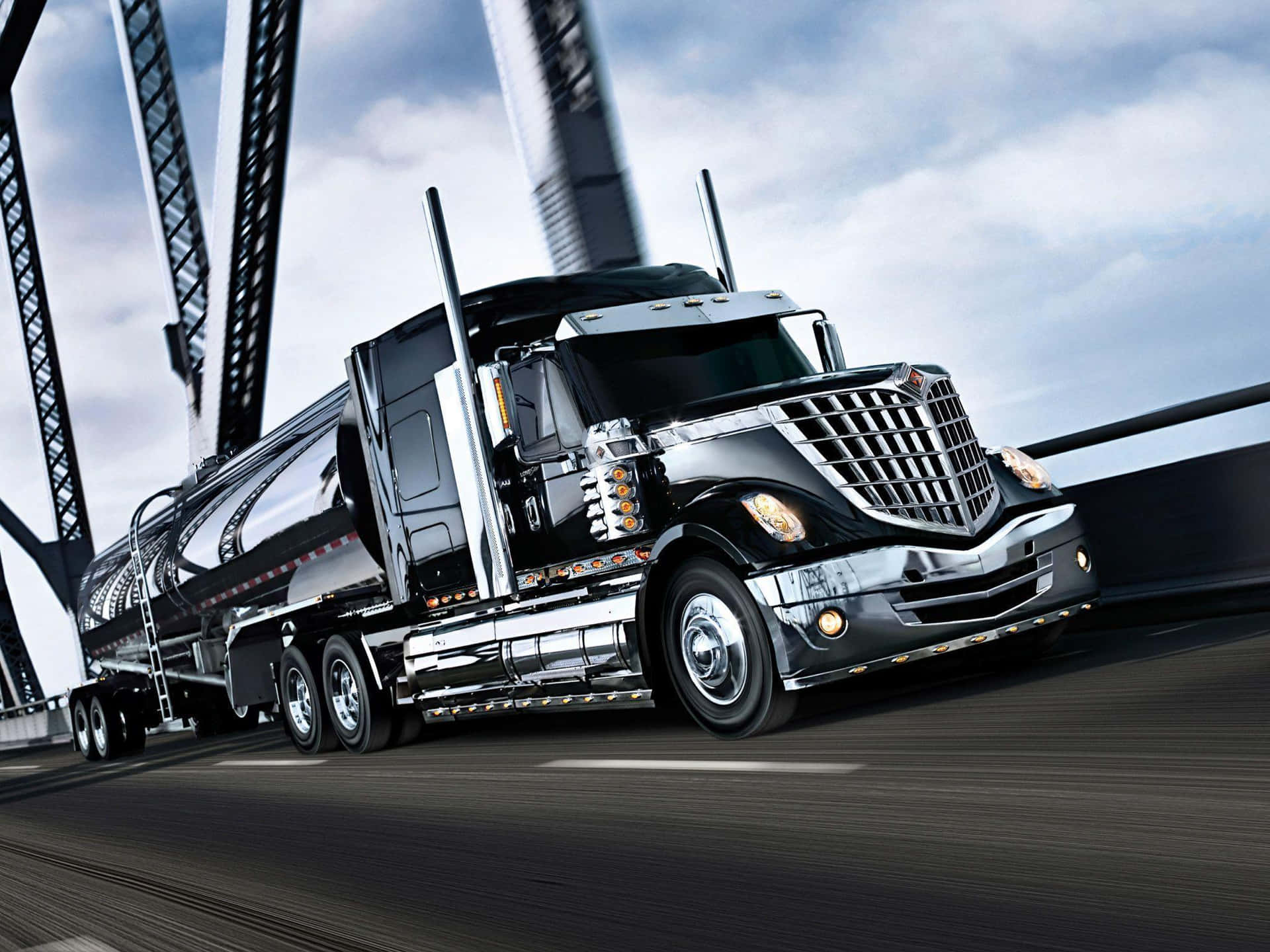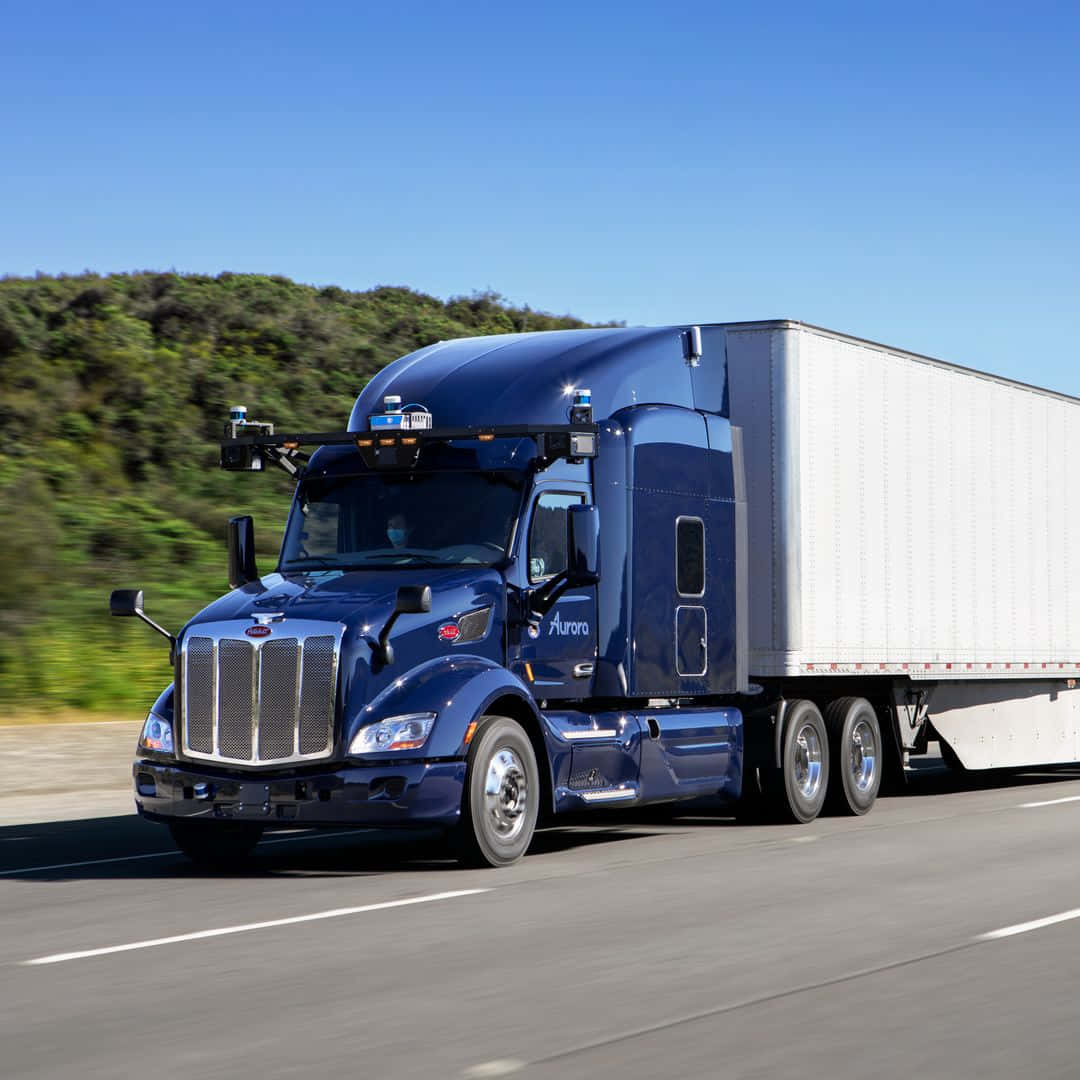Trucks For Sale Heavy Duty: Your Ultimate Guide to Buying and Selling Powerhouses on Wheels pickup.truckstrend.com
The backbone of countless industries, heavy-duty trucks are far more than just vehicles; they are indispensable assets that drive commerce, build infrastructure, and transport the goods essential to modern life. From hauling massive loads across continents to performing specialized vocational tasks on construction sites, these powerful machines embody reliability, strength, and unwavering performance. For businesses and owner-operators alike, investing in a heavy-duty truck is a significant decision, representing a commitment to efficiency, productivity, and long-term operational success.
Navigating the market for "Trucks For Sale Heavy Duty" requires a deep understanding of their complexities, capabilities, and the myriad factors influencing their value and suitability. This comprehensive guide aims to demystify the process, offering insights into what defines these formidable vehicles, how to identify the right one for your needs, and practical advice for both buyers and sellers in this dynamic sector.
Trucks For Sale Heavy Duty: Your Ultimate Guide to Buying and Selling Powerhouses on Wheels
What Defines a Heavy-Duty Truck? Understanding the Classes
At its core, a heavy-duty truck is classified primarily by its Gross Vehicle Weight Rating (GVWR), which indicates the maximum operating weight of the vehicle as specified by the manufacturer, including the vehicle’s chassis, body, engine, fuel, accessories, driver, passengers, and cargo. In the United States, the Department of Transportation (DOT) categorizes trucks into classes based on GVWR. Heavy-duty trucks typically fall into:
- Class 7: Trucks with a GVWR ranging from 26,001 to 33,000 pounds (11,794 to 14,969 kg). These often include larger single-unit trucks like refuse trucks, city buses, and some larger vocational chassis.
- Class 8: Trucks with a GVWR exceeding 33,001 pounds (14,969 kg). This is the largest and most common category for heavy-duty vehicles, encompassing tractor-trailer units (semis), dump trucks, concrete mixers, fire trucks, and other specialized vocational vehicles.
Beyond GVWR, heavy-duty trucks are characterized by their robust construction and powerful components designed for demanding applications. This includes high-torque diesel engines, durable multi-speed transmissions (manual, automated manual, or automatic), heavy-duty axles capable of supporting immense weight, advanced air braking systems, and reinforced chassis frames. Their engineering ensures longevity, reliability, and the capacity to handle strenuous work cycles day in and day out.

The Indispensable Benefits of Heavy-Duty Trucks
Investing in a heavy-duty truck offers a multitude of advantages that directly impact profitability and operational efficiency for businesses across various sectors:
- Unmatched Power and Payload Capacity: Designed to haul enormous weights, heavy-duty trucks provide the necessary power and torque for large-scale transportation and specialized tasks, maximizing load efficiency per trip.
- Exceptional Durability and Longevity: Built with high-strength materials and robust components, these trucks are engineered to withstand rigorous daily use, harsh environments, and demanding conditions, leading to extended service life.
- Reliability for Critical Operations: When downtime means lost revenue, the reliability of a heavy-duty truck is paramount. Their sturdy construction and often simpler, more maintainable systems compared to lighter vehicles contribute to consistent performance.
- Versatility Across Industries: From long-haul freight and construction to waste management, agriculture, and emergency services, heavy-duty trucks can be customized and adapted with various bodies and equipment to serve diverse operational needs.
- Potential for High Return on Investment (ROI): While the initial investment is substantial, the ability of these trucks to handle large volumes of work efficiently translates into higher earning potential and a quicker ROI for well-managed operations.
- Advanced Technology Integration: Modern heavy-duty trucks incorporate sophisticated technologies for improved fuel efficiency, driver comfort and safety (e.g., advanced driver-assistance systems, telematics), and enhanced fleet management.


Types and Categories of Heavy-Duty Trucks
The market for heavy-duty trucks is diverse, with models specifically designed for different applications. Understanding these categories is crucial for pinpointing the right vehicle:
- On-Highway Tractors (Class 8): These are the most recognizable heavy-duty trucks, designed to pull trailers.
- Sleeper Cabs: Feature an integrated sleeping compartment for long-haul drivers, offering amenities for extended trips. Common manufacturers include Freightliner, Peterbilt, Kenworth, Volvo, Mack, and International.
- Day Cabs: Lack a sleeper compartment and are used for regional hauling or local deliveries where the driver returns home daily.
- Vocational Trucks (Class 7 & 8): These are built for specific job functions and often feature specialized bodies or equipment.
- Dump Trucks: Used for transporting loose materials like sand, gravel, and demolition waste. Available in various axle configurations (e.g., tri-axle, quad-axle).
- Concrete Mixers: Equipped with a rotating drum to mix and transport concrete.
- Refuse Trucks (Garbage Trucks): Designed for waste collection, with compaction mechanisms.
- Logging Trucks: Specialized for transporting timber from forests.
- Heavy Haulers/Lowboys: Designed to transport oversized and overweight equipment or machinery.
- Fire Trucks & Emergency Vehicles: Highly specialized vehicles with pumps, ladders, and rescue equipment.
- Tow Trucks (Heavy-Duty Wreckers): Capable of recovering and towing other heavy vehicles.
- Service & Utility Trucks: Often equipped with cranes, tool compartments, and specialized utility bodies.
Key Considerations When Buying Heavy-Duty Trucks
The decision to purchase a heavy-duty truck is complex and requires careful consideration of several critical factors to ensure the vehicle aligns perfectly with your operational requirements and budget.
-
New vs. Used:
- New Trucks: Offer the latest technology, full warranties, customizable options, and often more favorable financing terms. However, they come with a significantly higher upfront cost and rapid depreciation in the initial years.
- Used Trucks: Present a lower entry cost, slower depreciation, and immediate availability. The trade-off can be higher maintenance risks, shorter lifespans for components, and potentially outdated technology. A thorough pre-purchase inspection is paramount for used vehicles.
-
Application-Specific Needs: The primary function of the truck dictates its specifications.
- Payload and Towing Capacity: How much weight do you need to move? This determines engine size, axle configuration, and transmission type.
- Route and Terrain: Will it operate on highways, rough construction sites, or a mix? This impacts suspension, tire choice, and drivetrain (e.g., AWD for off-road).
- Operational Hours/Mileage: High usage demands greater durability and potentially different maintenance schedules.
-
Engine and Drivetrain:
- Horsepower and Torque: Match these to your typical loads and desired performance. Higher torque is crucial for heavy hauling and climbing grades.
- Transmission Type: Manual transmissions offer more control and potentially better fuel economy for experienced drivers, while automated manual transmissions (AMTs) and automatics reduce driver fatigue and can optimize shifting.
-
Gross Vehicle Weight Rating (GVWR) & Gross Combination Weight Rating (GCWR): Ensure the truck’s ratings meet or exceed the maximum weight it will carry or tow, including itself, its cargo, and any attached trailers. Overloading is illegal, unsafe, and damages the truck.
-
Total Cost of Ownership (TCO): Look beyond the purchase price. Factor in:
- Fuel Efficiency: Significant for high-mileage operations.
- Maintenance and Repair Costs: Parts availability, specialized labor, preventative maintenance schedules.
- Tires: A major ongoing expense.
- Insurance, Licensing, and Taxes: Varies by region and vehicle type.
- Resale Value: How well does the specific make/model hold its value?
-
Cab Style and Driver Comfort: For long-haul operations, a comfortable sleeper cab with amenities (e.g., refrigerator, microwave, ample storage) can significantly impact driver retention and productivity. For day operations, ergonomics and visibility are key.
-
Technology and Safety Features: Modern trucks offer advanced safety features like collision mitigation systems, lane departure warnings, stability control, and blind-spot monitoring. Telematics systems provide valuable data for fleet management, diagnostics, and regulatory compliance (e.g., ELDs).
-
Service History (for used trucks): A comprehensive service history is invaluable. It indicates how well the truck was maintained and can reveal potential recurring issues. Look for regular oil changes, transmission fluid changes, and records of major component replacements.
-
Financing Options: Explore various financing avenues, including traditional bank loans, specialized commercial vehicle lenders, and leasing options, which can offer tax benefits and lower upfront costs.
How to Navigate the Market: A Buyer’s Guide
Acquiring a heavy-duty truck is a significant investment. Follow these steps to make an informed decision:
- Define Your Exact Needs: Before even looking, detail your operational requirements: What will you haul? How far? What terrain? What’s your budget (including ongoing costs)? New or used preference?
- Conduct Thorough Research:
- Brands and Models: Identify reputable manufacturers known for durability and support in your specific application.
- Market Value: Research current prices for similar trucks based on age, mileage, condition, and specifications. Websites like TruckPaper, CommercialTruckTrader, and specialized auction sites are excellent resources.
- Common Issues: Look up known problems or recalls for specific models and years.
- Explore Sourcing Options:
- Authorized Dealerships: Best for new trucks, often have certified used trucks, offer warranties, financing, and service.
- Used Truck Dealerships: Specialize in pre-owned commercial vehicles, wider selection of brands and price points.
- Online Marketplaces: Provide extensive listings from various sellers (dealers, private owners). Exercise caution and verify sellers.
- Auctions (Physical & Online): Can offer competitive pricing, but vehicles are often sold "as-is," requiring expert inspection.
- Private Sellers: Potentially lower prices due to no dealer markup, but less recourse if issues arise.
- Crucial Inspection (Especially for Used Trucks):
- Professional Mechanic: Hire a qualified heavy-duty truck mechanic to perform a pre-purchase inspection. This is non-negotiable. They can identify hidden mechanical issues, frame damage, and signs of neglect.
- Test Drive: Drive the truck under typical load conditions if possible. Listen for unusual noises, check braking, steering, transmission shifting, and engine performance.
- Visual Inspection: Check tires, fluid levels, leaks, rust (especially on the frame), cab condition, and all lights/gauges.
- Review Documentation:
- Title and Registration: Ensure clear title, no liens.
- Service Records: Verify consistent maintenance.
- VIN Check: Run a VIN check to confirm accident history, odometer discrepancies, and previous ownership.
- Negotiate and Finalize:
- Be prepared to negotiate based on your research and inspection findings.
- Secure financing before making an offer.
- Understand all terms of the sale, including "as-is" clauses.
- Ensure proper title transfer and registration.
- Secure Insurance: Obtain comprehensive commercial truck insurance coverage before putting the truck into service.
Tips for Selling a Heavy-Duty Truck
Whether upgrading your fleet or retiring a vehicle, selling a heavy-duty truck requires strategic preparation to maximize its value and ensure a smooth transaction.
- Prepare the Truck:
- Thorough Cleaning: Detail the interior and exterior. A clean truck suggests it has been well-maintained.
- Minor Repairs: Fix any small, inexpensive issues that could deter buyers (e.g., broken lights, minor fluid leaks, worn interior components).
- Maintenance: Ensure all fluids are topped off and the truck is in good running order. Consider a fresh oil change.
- Gather All Documentation: Compile service records, maintenance logs, original manuals, the title, and any records of major repairs or component replacements. A complete history builds buyer confidence.
- Set a Competitive Price:
- Research recent sales of similar trucks (make, model, year, mileage, condition, features).
- Be realistic about your truck’s value. Factor in depreciation, wear and tear, and market demand.
- Consider getting a professional appraisal if unsure.
- Create Compelling Marketing Materials:
- High-Quality Photos: Take clear, well-lit photos from multiple angles (exterior, interior, engine, specialized equipment). Highlight key features.
- Detailed Description: Provide comprehensive information including make, model, year, mileage, engine specs, transmission type, GVWR, GCWR, any specialized equipment, recent maintenance, and reason for selling.
- Choose the Right Sales Platform:
- Online Marketplaces: Websites like TruckPaper, CommercialTruckTrader, IronPlanet, and even general sites like eBay or Craigslist for local sales.
- Auctions: Suitable for quick sales, but you might not get your desired price.
- Dealership Trade-in: Convenient, but often yields a lower value than a private sale.
- Word-of-Mouth: Network within your industry.
- Be Transparent and Responsive:
- Disclose any known issues or past accidents upfront. Honesty builds trust.
- Be prompt in responding to inquiries and flexible in scheduling viewings/test drives.
- Negotiate and Finalize the Sale:
- Be prepared for negotiation.
- Verify funds before transferring the title. Use secure payment methods.
- Ensure all necessary paperwork for title transfer and bill of sale is completed correctly.
Potential Challenges and Solutions in the Heavy-Duty Truck Market
While rewarding, the heavy-duty truck market presents its share of challenges. Being aware of them allows for proactive solutions:
- Challenge: High Initial Cost.
- Solution: Explore diverse financing options like commercial loans, leases (which can offer tax benefits), or consider a well-maintained used truck. Many lenders specialize in heavy equipment financing.
- Challenge: Significant Operating and Maintenance Expenses.
- Solution: Implement a rigorous preventative maintenance schedule to catch issues early. Invest in driver training for fuel-efficient driving techniques. Research trucks with strong reputations for reliability and parts availability. Budget for unexpected repairs.
- Challenge: Rapid Technological Advancements and Regulatory Changes.
- Solution: Stay informed about new emissions standards, ELD mandates, and safety regulations. When buying new, consider trucks with adaptable technology platforms. For used, ensure compliance with current regulations.
- Challenge: Finding the "Right" Truck for Niche Applications.
- Solution: Conduct extremely detailed needs assessments. Consult with industry experts or specialized truck body builders. Be patient in your search; custom solutions might be necessary.
- Challenge: Market Volatility.
- Solution: Keep an eye on economic indicators and industry trends. Prices for new and used trucks can fluctuate with demand, fuel costs, and supply chain issues. Be flexible with your buying or selling timeline if possible.
Practical Advice and Actionable Insights
- Always Prioritize a Pre-Purchase Inspection: For any used heavy-duty truck, a professional, independent inspection by a qualified mechanic is the single most critical step. It can save you tens of thousands of dollars and countless headaches down the road.
- Factor in Total Cost of Ownership (TCO): Never base your decision solely on the purchase price. Calculate fuel, maintenance, insurance, financing, and projected depreciation over the truck’s intended lifespan.
- Don’t Compromise on Safety Features: Modern safety technologies are not just luxuries; they protect your investment, your driver, and your public image.
- Leverage Industry Resources: Join industry associations, subscribe to trade publications, and participate in online forums. These resources provide invaluable insights, market trends, and networking opportunities.
- Build Relationships: Develop strong relationships with reputable dealers, mechanics, and financing professionals. Their expertise can be a significant asset throughout your truck ownership journey.
Price Table: Representative Costs for Heavy-Duty Trucks For Sale
The price of heavy-duty trucks varies dramatically based on numerous factors including manufacturer, model, year, mileage, engine specifications, condition, specific vocational body, and current market demand. The table below provides representative price ranges to give you a general idea, but these are estimates and can fluctuate significantly.
| Category | Typical Price Range (USD) | Key Factors Influencing Price |
|---|


